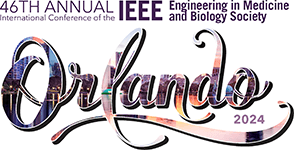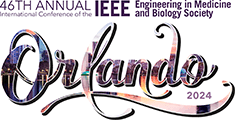Cardiovascular monitoring: Invasive and Noninvasive Tools for Critically Ill Patients
In intensive care unit (ICU) or during surgery, anesthesiologists dedicate their efforts to ensure the hemodynamic stability of patients and to prevent potentially catastrophic episodes, such as hypotension, which might jeopardize a correct perfusion of vital organs. Despite the relative abundance of measurements in the operating room (OR) and ICU, an in-depth analysis of the pathophysiological alterations in cardiovascular control that may arise in such critical conditions is still limited. The use of mathematical approaches based on cardiovascular signal processing and modelling for the prediction and prevention of such problems represent a great potential. The purpose of this session is to provide an overview of the state-of-the-art cardiovascular signal processing and modelling techniques to quantitatively estimate cardiac and circulatory dysfunctions, and to provide indices or predictive models with the final goal to support the clinicians in preventing the insurgence of hemodynamic instability and life-threatening events.
Presenters: Manuela Ferrario{1}, Marta Carrara{2}
{1}Politecnico di Milano, Italy; {2}Politecnido di Milano, Italy
Engineering Models and Systems for Health Disparities Research
Biomedical engineering and the underlying biomedical sciences hold great promise to deliver molecular to population-scale tools and therapies to advance human health. This session will explore how these advances can be harnessed to tackle disparities in health care, health access and increase biomedical technologies that can shrink the health gap. We bring together engineers, computational and biomedical scientists to showcase diverse approaches to addressing this challenge. Talks will focus on engineering methods and bioengineered platforms used to address comorbidities, chronic and cardiovascular diseases, and infection and immune compromising conditions that disproportionately affect underserved populations. Examples of how technology can advance minority health, as well as opportunities and threats that can widen disparities will be highlighted.
Presenters: Elebeoba May{2}, Renita Horton{1}
{1}University of Houston, United States; {2}University of Wisconsin-Madison, United States
Advancing Neural Technologies Through Machine Learning
The advent of machine learning has led to transformative changes across a myriad of scientific disciplines, including the field of neural engineering. This special session aims to explore the intersection between machine learning methodologies and neural engineering applications. Specifically, it will provide a platform for discussing how machine learning algorithms are increasingly utilized to refine, adapt, and innovate models of sensorimotor control, brain-machine interfaces, neuroprosthetics, and neuromodulation technologies. The session will delve into state-of-the-art techniques, identify prevailing challenges, and elucidate directions for future research. By bringing together leading researchers from both the machine learning and neural engineering communities, this session aims to foster interdisciplinary dialogue and collaboration, thereby accelerating advancements in neural technologies and processing. Examples of topics include, but are not limited to: – Machine Learning Algorithms for Brain-Machine Interfaces – Optimization of Coils and Antennas for Wireless Neural Implants – Neural Network Models of Motor Control, Sensory Processing and Cognition – Data-driven Approaches in Computational Neuroscience – Neural Explainability and Interpretability in Computational Neuroscience – Machine Learning Approaches to Neurological Disorder Diagnosis Our session aligns seamlessly with several thematic pillars of EMBC, encompassing areas like neural engineering, signal processing, computational systems, and biomedical sensors.
Presenters: Shreya Saxena{5}, Baibhab Chatterjee{3}, Sri Sarma{1}, Rose Faghih{2}, Maryam Shanechi{4}
{1}Johns Hopkins University, United States; {2}New York University, United States; {3}University of Florida, United States; {4}University of Southern California, United States; {5}Yale University, United States
How Start-Up Companies Can Better Position Themselves for Success
The Session covers what start-up healthtech/medtech companies can do to better position themselves for success (e.g., investment, strategic partnership, or acquisition). The Session presents strategies to help raise capital, efficient management of limited resources, and lessons learned from past start-up experiences. The Panel expands on what investors are expecting from a pitch made start-ups during fund raising. Strategic partnerships or exit events are covered as well. To that end, the Panel offers recommendations and their unique perspective regarding common pitfalls in the due diligence process. The Panel presents and discusses examples of questions and information requests made by investors, acquirers and other potential strategic partners, during due diligence processes. The Intellectual Property portion of the Session focuses on key aspects of a start-up’s patent portfolio, including patenting roadmap, freedom to operate and third-party risk assessment. The Session provides a checklist of actions to take to strengthen intellectual property assets prior to due diligence activities that occur during fund raising or exit events. The Session is intended to be interactive. Attendees are encouraged to ask questions and offer their viewpoints and experiences regarding intellectual property, start-up formation and sustainability, challenges and the like. Time will be reserved for Q&As, with the audience expected to engage with the panel on IP and start-up topics.
Presenters: Dorin Panescu{1}, Dieter Haemmerich{5}, Punit Prakash{4}, Ted Papagiannis{3}, Michael Christensen{3}, Nitish Thankor{2}
{1}Biotronik, United States; {2}JHU, United States; {3}Knobbe Martens, United States; {4}KSU, United States; {5}MUSC, United States
NIH Special Session: Funding Opportunities and Grant Writing
If you are interested in applying for research grants from the National Institutes of Health (NIH), you don’t want to miss this special session. You will hear from experienced researchers and NIH program officials, who will share their advice and insights on how to navigate NIH grant space and write effective grant proposals. You will also learn about current funding opportunities from NIH program officers who will introduce their programs and priorities for the National Institute of Biomedical Imaging and Bioengineering, as well as other trans-NIH programs and opportunities. The session will be concluded by a Q&A segment where you can ask questions and interact with the panel members. The topics would benefit trainees, researchers, and investigators in all the career stages. The spectrum of the presentation and panel discussion covers all the themes of EMBC 2024. Some of the knowledge discussed in the session may be beneficial for grant writing and application beyond NIH opportunities.
Presenters: Qi Duan, Tiffani Lash, Sahana Kukke
NIH, United States


